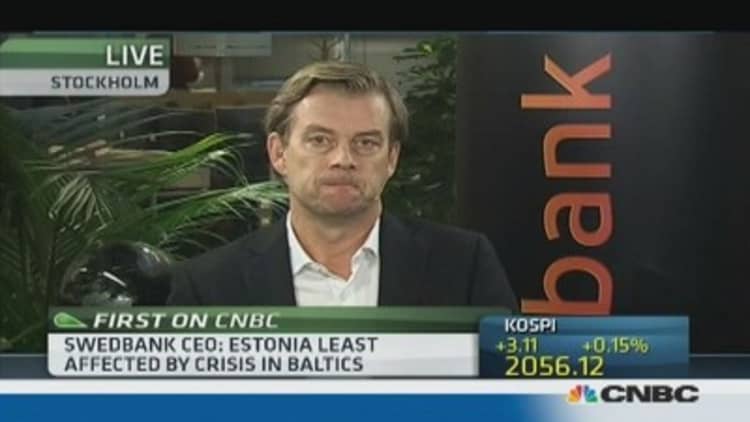Housing prices in several cities in Germany could be overvalued by as much as 20 percent, according to the country's central bank.
In its monthly report released Monday, the Bundesbank warned that price rises in urban areas "are difficult to justify based on fundamental factors", although there are no signs of substantial exaggerations in the German housing market in general.
"Over the past three years, the prices for houses and apartments have risen by a total of 8.25 percent. This is due to a 'marked gap between property prices in urban and rural areas'," the bank said in its press release.
The statement added that in Germany's largest cities, apartment prices had risen by more than one-quarter during this period, an increase that could "give rise to fears of a broad-based property price boom".
(Read more: Germany's housing market is flying - but is it a bubble?)
Urban housing markets could be up to 10 percent higher than acceptable, it said, adding that in attractive large cities, like Berlin, Hamburg, Munich, Cologne, Frankfurt am Main, Stuttgart and Düsseldorf the overvaluation could be as much as 20 percent.
Stronger demand for property than was expected during an economic recovery is seen a reason behind the price hikes, according to the Bundesbank, adding that the German property market became more attractive to international investors after the property market price bubble in the U.S. and in a number of European housing markets burst.
"Furthermore, the appeal of property investment has grown given the lower returns on financial assets in recent years," it said. It also earned that any price corrections in the housing market could give rise to notable wealth losses for households.
(Read More: Yep, it's another housing bubble)
However, the Bundesbank believes that it is very unlikely that this will result in macroeconomic risks to financial stability. The conditions placed on mortgages are much tougher than in the U.S. and other parts of Europe, including shorter-term loans. This means that banks and other lenders would probably not be severely affected.

Carsten Brzeski, a senior economist at ING, said that despite tentative signs of regional exaggerations, a text book bubble does not seem to be in the offing in Germany.
"There are no reasons, yet, to call the latest developments the start of a typical bubble as experienced in other countries before. Mortgage growth has remained limited, loan-to-value ratios in Germany have been stable at around 80 percent and the large majority of Germans still prefer mortgages with fixed - rather than variable - rates," he said in a research note on Tuesday.
"Even if the Bundesbank's assessment of a fundamental overvaluation looks justified, prices – at least in urban areas – could, in the short run, still further increase on the back of low interest rates and limited supply."
— CNBC.com's Matt Clinch. Follow him on Twitter @mattclinch81


